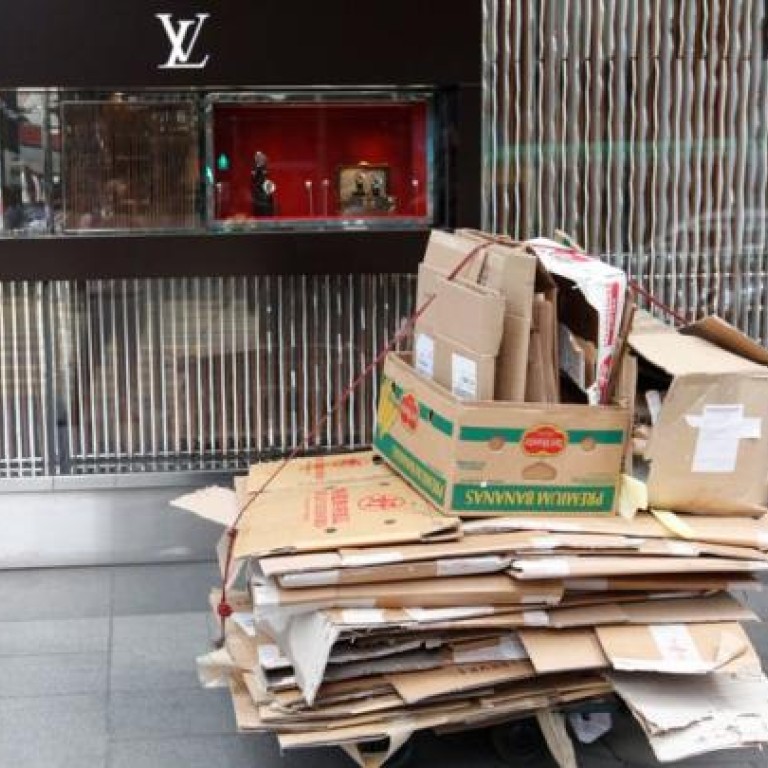
The misery of Hong Kong's wealth gap
Hong Kong people are a miserable lot. According to the misery index constructed by Shue Yan University's Economic and Wellbeing Project, seven in 10 Hongkongers say they are living in misery.
It appears the poorer you are, the unhappier you become. Households with monthly income of HK$10,000 to HK$20,000 have the highest misery index of 2.93 out of 4, with 4 being the most miserable. Those on HK$15,000 to HK$19,999 scored 2.90. The happiest, at 2.79, are households with a monthly income of HK$50,000 or more. So, while it's true that money can't buy happiness, the lack of it does bring misery.
But this tells only part of the story. It isn't that we are poor as a whole. A new survey by Citibank finds that one in nine of the city's adults - or at 601,000 people - are Hong Kong-dollar millionaires, a 14 per cent jump from the previous year. The survey only counts liquid assets such as cash, stocks and bonds, and excludes property. One in three makes his or her money from property, and one in four from investments such as the stock and bond markets.
A widely reported global study in November by investment firm Royal Skandia found that the average Hongkonger thinks he or she needs to earn HK$1.5 million a year - or HK$125,000 a month - to be happy. No wonder we are miserable. According to government census, only 4.2 per cent of the working population earns more than HK$60,000 a month. On average, we earn just HK$12,800 per month.
Government figures also show our poor are slightly less poor than a decade ago, but the rich are a lot richer. So while our collective wealth is improving, the ever-widening wealth gap has become a source of social tensions. It may also have raised expectations that are difficult to meet and so contributed to a sense of misery and malaise.
Only a more equitable rise in wealth and its distribution can hope to ease the tension between the haves and the have-nots.
